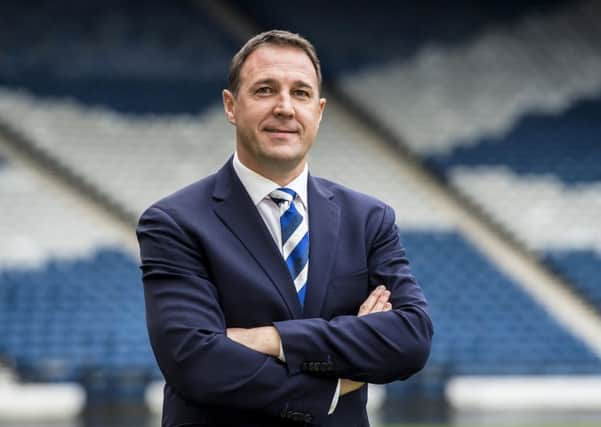Ian Cathro: Coaches must believe in change or players won't


A report by the University of Stirling offered a grave warning to the Scottish game, stating that “being trapped in a context where tradition, self-interest and resistance to innovation acts as a barrier to learning means the system will collapse unless people are open to change”.
In Cathro, though, Hearts have made a commitment to maintaining the forward-thinking practices that were integral to his predecessor Robbie Neilson’s success.
Advertisement
Hide AdAdvertisement
Hide Ad“I’m really pleased and confident in the knowledge that we have a strong group who work well, believe in their work – and can do it,” said the Tynecastle boss. “They are receptive, very much so. But I do have to emphasise that we’re not trying to reinvent the wheel or do anything way out there. We’re still playing with a round ball. There really is no drastic change taking place, it’s just our work.”
That flies in the face of the report, led by Dr Andrew Kirkland, a sports lecturer at Stirling, who seemed to back the theory espoused by former players and pundits that predicted resistance to Cathro and his methods. Claiming that the hard-man culture is alive and kicking in Scottish football, the report said that coaches who “think a little bit differently, may find it difficult or impossible to get players, particularly senior ones, on board”.
It is with that in mind that the SFA’s new performance director Malky Mackay, pictured, announced his intention to improve the mentoring of young coaches in the country. Having seen the way Scottish football approaches coaching and been in a position to compare it with the way the game operates elsewhere, Cathro, who previously founded his own coaching course and devised the much-lauded Box Soccer training technique, said the responsibility for accepting new methods lies with the coach.
“I would say I have seen changes, definitely. I think there is a bit of evolution in some things, which is only natural,” said Cathro, who is looking for his first win, against Dundee, tomorrow. “So I would say there has been forward movement. To go into too much detail, I wouldn’t be overly certain on every single aspect. But it’s natural that people should move forward in their thinking, even to reach a point of staying competitive. That’s particularly true for the teams who have to compete in Europe. It’s going to be important that they adapt and it will happen naturally.”
But he said managers and coaches had to buy into any changes completely as players would sense any doubts.
“It comes from the value of your knowledge. And it works because the players believe that everything you say, everything you have them do, everything you talk about in sessions, all makes sense. That’s rule number one. It must make sense. They have to be able to see what you see, understand what you want, know why you’re asking them to do something. After that, it’s not about somebody being closed to this idea or that idea.
“You either have the quality to put that across and people want to buy what you’re selling – or you don’t. If they don’t, you are going to fail. If they do, you’ve got a great chance of succeeding. And everybody here is buying.”